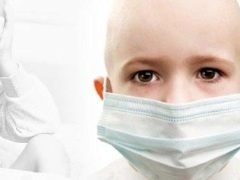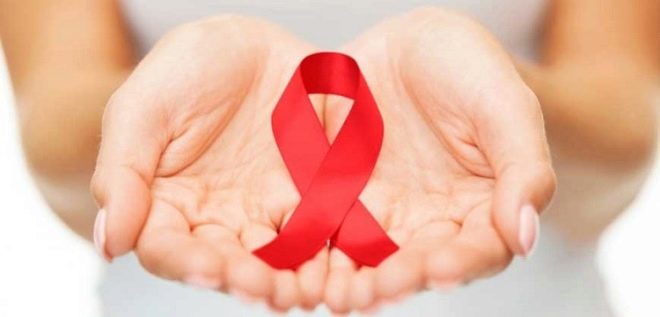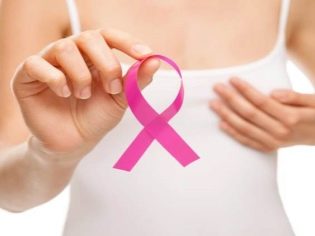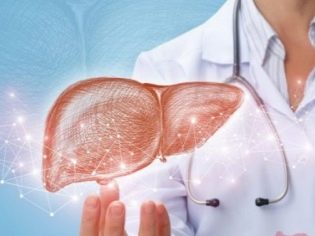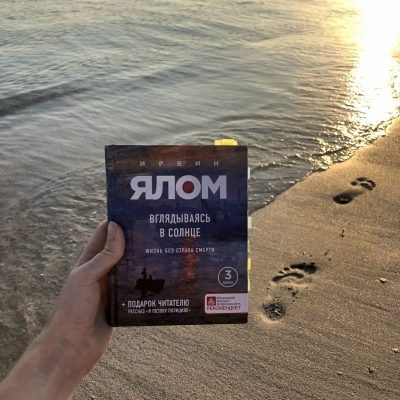Psychosomatics of oncological diseases in adults and children
Scientists and doctors all over the world are struggling to establish the causes of cancer. But so far there are only hypotheses that have not received convincing scientific evidence. Meanwhile, the number of oncological diseases is growing rapidly: in the coming years, WHO experts predicted a growth of up to 20 million people, which means that cancer will be twice as often.
Meanwhile, scientists are increasingly considering a psychosomatic version of the origin of oncological ailments. In this article we will look at it.
Why does the disease appear?
Cancer is a malignant tumor, extremely life-threatening. It consists of mutated malignant cells that divide uncontrollably and tend to invade neighboring tissues and organs (metastasis). The study of the causes and the search for methods of treatment is engaged in medicine all over the world, but until the end of the research has not been completed.
For a long time, it was believed that one should not underestimate the genetic factor in the development of oncology, but The latest scientific study, published in Nature, showed that, to a greater extent, the occurrence of a disease is not affected by internal genetic causes, but external. Researchers include unfavorable ecology, poor nutrition, obesity and low mobility of a person, some viruses, weakened immunity, severe and prolonged depression.
The psychosomatic factor in the development of oncological diseases is obvious and is no longer in doubt. Even experienced oncologists do not deny that a person creates an oncological disease for himself in essence: by his behavior, habits, reactions, and even thoughts.
It is this combination of factors that psychosomatics studies - the field of science at the junction of medicine and psychology.
Psychosomatic causes
Scientists think about the psychosomatic factor by chance: many people smoke and eat junk food, millions live in areas with unfavorable environmental conditions, but not all of them have cancer!
The treatment that currently exists in the arsenal of doctors also does not affect everyone: the therapy is the same, but one patient successfully overcomes the illness, and for the second, the disease is fatal. That is what made psychoanalysts, clinical psychologists and oncologists look closely at their patients, pay attention to the psychological portrait of cancer patients - both children and adults.
It should be noted that work with oncological patients is the most difficult for psychotherapists and psychosomatics. It is very difficult to make a person believe that he has enough strength to overcome an illness that he himself created.. If it turned out that such a diagnosis was made to you or your relatives, you should wish you great courage, it will be necessary to answer yourself very frank and uncomfortable questions. If the goal is to recover, it must be done. It's like a bitter pill. It will be unpleasant, but the effect will not take long.
A malignant tumor, from the point of view of psychosomatics, is a concentration of hopelessness. Psychologists have revealed that those with cancer have almost completely lost faith in themselves and people in general.Their thoughts and feelings are destructive, and they have such power that a self-destruct program is actually launched in the human body.
Dr. Lawrence Leshen devoted his life to the study of the psyche of cancer patients, it was he who composed the main features of cancer patients, having studied the biographies and tested several tens of thousands of patients at oncological dispensaries.
He found that a cancer patient:
- cannot, does not want or does not know how to express his feelings openly, he tries to keep everything silent, not to show his feelings to others;
- does not love himself, despises, "erases" himself from this world, is sure of his inferiority or inferiority (in general or in one of the spheres of life);
- in almost 85% of cases, it has certain difficulties and misunderstandings in communicating with loved ones, especially with their own parents;
- shortly before the development of the disease, experienced a heavy emotional loss, loss.
If all these features are present, according to Lawrence Leshen, forecasts are unfavorable - within six months a person dies from the disease. But at almost any stage, the patient can reverse the course of the disease on his own or with the help of a psychoanalyst, just by acknowledging that he was thinking and living with the wrong attitudes.
A distinctive feature of malignant neoplasms is internal anger and aggression. 99% of patients it is peculiar, and it is considered to be the main trigger in the development of the disease. Aggression is most often directed at himself, the person literally “eats” himself, blames himself for everything that happened not so, and experiences anger at the same time.
Psychoanalysts tend to believe that the disease develops according to this mechanism:
- at first, something happens that plunges a person into an insoluble situation, from which he sees no way out; the perplexity is replaced by a sense of his own helplessness;
- depressive changes in the psyche occur, at the physical level they appear as a depressed state of immunity;
- Immunity ceases to control the rate of reproduction of certain cells, which causes the proliferation of cells into a tumor, if they change their structural and functional characteristics, the tumor is classified as malignant.
The influence of the neural factor (CNS factor) on immune cells was proven in the last century.
With reference to questions of psychosomatics, oncology, depression, loss of faith in oneself, helplessness, strong offense and hopelessness are called psychological carcinogens. Cancer threatens those who do not know how to take responsibility for their lives. Such people are usually quite infantile and it is more convenient for them to shift the responsibility for their existence to others.
They often use in their speech "childish" forms of expression of feelings: "he offended me", "he betrayed me", etc.
Also cancer often develops in a person who, on the contrary, takes a lot of responsibility: his habit of leadership, control extends beyond his professional activities. He is trying to control children, relatives, friends. And when it does not work, he experiences a strong insult to them: “I’m hurt you for the cake, and you ...”.
As soon as man ceases to feel its importance (perhaps this feeling is false, invented by the person himself), necessity, he is already becoming a potential patient of the oncologist. It is this reason that leads older people: children have grown up and cannot control them, there is no need to work in an elderly specialist - they sent him to retire, a person feels “left behind” and the strongest inner grievance on the world starts the process of slow suicide - oncology.
Oncology in children
Particularly noteworthy issues of pediatric oncology. If pathology is detected at an early age, the cause should be sought in the parents., and not always it lies only in a genetic predisposition to cancer.Let us give an example: a woman, having become pregnant, thought for a long time whether to save the child, doubted, since the pregnancy was unplanned. She even took the direction for an abortion, but at the last moment she changed her mind and saved the baby's life.
From the first weeks of the baby’s existence several times “destroyed” mentally, because thoughts about abortion were frequent and persistent, because the woman felt helpless and had no housing (money, work). Resentment at the man, resentment at himself, that this happened, persisted even after her decision to leave the baby. The program of self-destruction was laid down by the child along with the formation of his immune cells.. Not every mother has the courage to admit that at some point she herself wished the child to die. Usually such diseases are detected in children at a very early age.
In the causes of pediatric oncology, developing after 2-3 years and older, resentment can already be traced. For a child, insult is a hidden form of aggression, since other forms are not yet available to babies.
Accumulation of insults occurs most often in the following situations.
- Baby feels unwanted, superfluous, disturbing (parents spend little time on the crumbs, he often hears “go away,” “leave me alone,” “shut up,” “you drank all my blood.” He sincerely does not understand why, but he feels that he is not welcome here. First, the immunity weakens, the baby begins to get sick more often, trying to at least attract diseases to himself. He succeeds. But when the diseases recede, the parents return to the rhythm of life that they are used to, and the child again turns out to be “superfluous.” He gradually launches the self-destruct program. - A malignant tumor appears.
- The child feels inferior.. This is facilitated by mom and dad, who do not forget to remind you that “the neighbor boy is already reading, and you take all the fingers in your mouth”, “Kolya is doing great, and you are lazy and stupid”. The mechanism is the same - self-destruction.
- The child has suffered a heavy emotional loss. (the death of the father or mother, the departure of the parent from the family), no one supported him in his experiences, he was ignored, he fell into a stalemate, an inner emotional dead end. This is followed by depression and, again, self-destruction.
It is very difficult to find the cause of pediatric oncology, there are several dozens of options that are considered when the psychotherapist personally contacts the child and his parents.
What is the location of the tumor?
Every organ and body part has its own psychosomatic meaning. Based on this, it will be important for the psychotherapist exactly where the malignant neoplasm develops.
- Breast cancer - female or maternal lack of fulfillment, guilt in front of children, a sense of strong shame for children, despair, depression due to the inability to control children or loved ones, the loss of a husband. It often develops in women who fulfill several roles in the family at once: they are mothers, wives, cooks, nurses, and the main earners of money. Resentment develops in relatives for the fact that, in the opinion of the woman herself, they do not know how to be grateful enough for her self-sacrifice, since she has long ignored her own interests.
- Cancer of the stomach, intestines - a dead-end option in which a person cannot “digest” situations, other people, information. He usually refuses to help loved ones, closes tightly their own experiences. Resentment and auto-aggression are directed inwards, having no way out - the oncology of the digestive organs develops. Rectal cancer often develops in pathologically greedy people who do not know how to give anything.
- Brain cancer - great obstinacy, inertia, refusal to change their old patterns of behavior to new ones, rejection of the new, fear of the future. Often develops in people who are selfish, who very strongly concentrate on themselves and resent others for the lack of proper attention to their person.
- Liver cancer - lack of love, care, finance, recognition, communication. Resentment at those who have it, accumulates for a long time.Develops most often in people envious.
- Lung tumor - offense to relatives because of their callousness or indifference. It develops in highly disappointed people who no longer want to accept something new from the external world, do not want to "breathe" life itself.
- Skin cancer - resentment and anger at the whole world and all people in it, because they seem to be a source of danger to the patient. It seems to him that everything around him threatens, he is defenseless. It develops mainly in suspicious people with anxiety mental disorder, severe “childish” attitudes about the aggression of the world, which parents have inculcated.
- Cancer of the blood - a consequence of deep total depression, lack of joy, severe problems in a family with relatives and friends. Often develops in those who are greatly offended by their relatives.
- Oncology of the thyroid gland - A disease of offended, but very kind and defenseless people who do not understand why others did not appreciate their kindness and gullibility, why they were deceived or betrayed.
- Malignant gynecological processes - a sign of women’s denial of their feminine principle, resentment towards men, dissatisfaction with their sex life (cancer of the cervix, the uterus itself, the ovaries - often the result of self-hatred towards a partner, rejection of sexuality, disgust)
- Prostate cancer - a consequence of male failures with women, voluntary internal rejection of close relationships due to distrust, hostility. Often, this type of oncology is called the “cuckolds” disease (insult to the betrayal of a woman, her departure and anger, along with a sense of inferiority).
The location of the tumor will prompt the specialist in which area of a person’s life a search for the root cause, which has so perniciously suppressed its immunity.
If a woman comes with breast cancer - the psychological carcinogen is hidden in her motherhood and in the family, if a man comes with bladder cancer - you need to look for in the sphere of small domestic feelings and emotions, minor but numerous insults on trifles in everyday life.
Treatment
An interesting scheme of psychotherapy for cancer patients suggested Irwin Yalom. In his book, “Peering into the sun. Life without fear of death " He described methods for his fellow psychotherapists to help the patient realize that the control he wants is an illusion that fear, anger and resentment can be artificially lived and these “toxins” can be removed from the body.
He suggested a technique called "symptom energy". The patient should, in a relaxed state, “listen” to his body. What does the symptom tell him, what is it, what does it look like? All this needs to be described in words. Further, the energy clot in the diseased organ is gradually moved into the room and examined from the side, and then the person is immersed directly into it, into this energy clot. Sensations that the patient makes from such psychotherapeutic sessions are the key to changing the quality of his life.
Oncology is often called the “offended people’s disease”. Therefore, it is important to learn to forgive and let go of hurt feelings with the world, not to save them. If the diagnosis has already been made, forgiveness can be an important part of therapy, it greatly increases the chances of a successful recovery.
